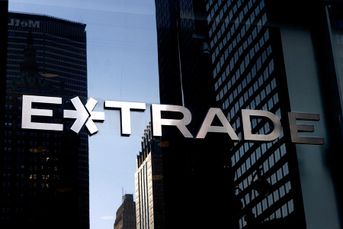Move over, Puerto Rico. Illinois, New Jersey and other states face municipal bond woes, too

Those as well as energy-producing states are seeing worsening balance sheets.
Puerto Rico isn’t the only municipal bond issuer facing fiscal problems, and if your clients are expecting a smooth ride in the high-yield muni market, you may have to tell them to fasten their seat belts.
Puerto Rico’s partial default on its bonds this month shook the muni market, and particularly some funds with big holdings in the bonds, which are free from state and local taxes across the country. But other muni issuers are in rough shape as well, even though most states’ balance sheets are improving, says Standard & Poor’s.
The two biggest problems: Falling oil prices and exceptionally brutal financial wrangling in the statehouses. States that depend on oil production, such as Alaska, Louisiana, Oklahoma and North Dakota, are seeing revenue shortfalls because of lower energy prices.
Alaska, for example, is facing a $3.9 billion budget shortfall, equal to 74% of expenditures, according to S&P. It’s rated AA+, a strong rating, but with a negative outlook. Louisiana, which is not only dependent on oil, but has major structural budget problems, is rated AA with a negative outlook.
Many of the states’ woes appear to be of their own making. Illinois, for example, has an A- rating with a negative outlook, the worst of the 50 states. The rating could hit BBB if the state does not make “significant improvements to its budgetary alignment,” S&P said in its most recent assessment of the state’s debt.
New Jersey boasts the next-worst rating for its general obligation bonds: an A rating, with a negative outlook. The state’s underfunded pensions and large outstanding debt were behind the relatively low rating.
Even though states can’t declare bankruptcy, their bond prices can get smacked when they get a ratings downgrade. Nevertheless, some funds have taken significant stakes in Illinois and New Jersey debt, according to Morningstar, the Chicago investment trackers.
Prudential Short Duration Muni High Income (PDSAX) has 11.9% of its assets in New Jersey paper, according to Morningstar, the highest percentage of any fund in the high-yield muni category. (It also has 11.2% of its portfolio in Illinois).
The biggest fan of Illinois muni bonds: Wells Fargo High Yield Municipal A (WHYMX), with 15.2% of its assets in the state’s paper. Oppenheimer Rochester Limited Term Muni (OPTIX) has 12.9% of its portfolio in Illinois munis, as well as 19.7% in Puerto Rico.
Most of these funds have relatively low duration, which means that they’re not taking any chances on long-dated issues from shaky states. Prudential’s offering, for example, has an average effective duration of 3.85 years. The Wells Fargo fund weighs in at 5.67 years.
States with rising populations have the best outlook for their municipal finances, S&P says. Those states with an aging population are spending more on retirement benefits and less on infrastructure, which could limit future growth.
Investing in municipal debt with shaky credit ratings is far less dangerous than it may seem, at least in the long term. High-yield municipal bonds funds have returned an average 7.4% a year the past five years, vs. 4% for high-yield corporate bonds. And funds that invest in long-term California bonds — once a poster child for state budget reform — have returned an average 6.9%.
Learn more about reprints and licensing for this article.








